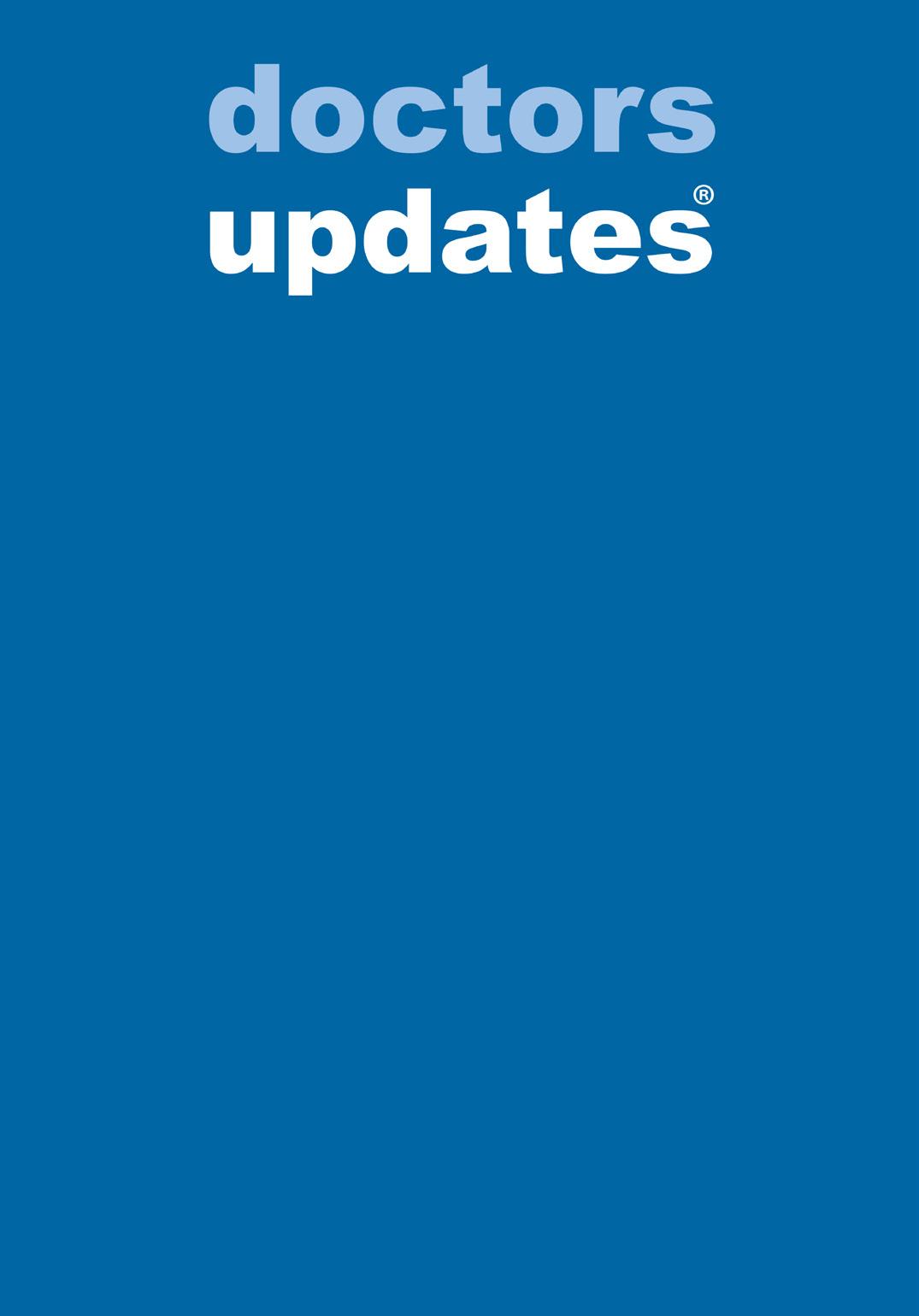
8 minute read
A letter in response to: COVID-19 causes a SHiFT in the sands for proximal femoral fracture management? A plea for caution
A letter in res p onse to: COVID-19 causes a SHiFT in the sands for proximal femoral fracture management? A plea for caution
Peter M Lewis, Miriam Day, Lisa A Williams, Laura Lougher, Glenn J Clewer and Stephen Sarasin
Advertisement
Letter originally published 22 April 2020 in response to the article: COVID-19 causes a SHiFT in the sands for proximal femoral fracture management? https://www.boa.ac.uk/policyengagement/journal-of-trauma-orthopaedics/journal-of-trauma-orthopaedics-and-coronavirus/ covid-19-causes-a-shift-in-the-sands-for-proximal.html. Published in TJTOC&C 17 April 2020.
We read with interest the article written by the Swansea orthopaedic surgeons with regard to the treatment of patients with a fractured neck of femur (FNOF) during the present COVID-19 virus crisis 1 . Although this endeavour is to be congratulated on a ‘be prepared for the worst’ basis, we have considerable reservations with their conclusions and therefore its use.
The Swansea team offer a scoring system for Trauma and Orthopaedic departments in UK hospitals to use in patients with a FNOF and provides treatment protocols to be undertaken either within the hospital or with patients remaining based at home. Their scoring system, abbreviated SHiFT (Swansea Hip interrogation Fracture Tool), offers a scoring tool to determine if patients warrant surgery or conservative management. We therefore ask the question firstly, is this scoring system indicated at present because of the serious and severe shortage of beds/ surgeons/operating lists etc. and secondly, is this SHiFT scoring system supported by the established orthopaedic literature.
Firstly, of significance, on the 16th April 2020 Chief executive of NHS Wales Dr Andrew Goodall warned against waiting too long to seek emergency treatment or choosing not to access regular services at the present time 2 . He stated, although understanding services are disrupted “I am concerned people may not be seeking medical help for illnesses and symptoms not related to COVID-19”. He reinforced the message that “urgent and emergency services for both physical and mental illness are still open and accessible”.
Therefore, thankfully at present, although elective operating lists have been cancelled, emergency lists for life threatening conditions can continue. Of relevance to patients with FNOF, A&E emergency attendances are currently 60% down compared to this time last year and ambulance arrivals reduced by 20% 2 . ‘Patient activity’ for GPs has also fallen by 25% lower than usual. Furthermore, all Health boards in Wales are reporting a ‘green’ status, and with around 49% of their critical care beds remaining vacant with only one in three occupied with a Coronavirus patient 2 . Although staff sickness is increased during this pandemic to 9.2%, the average for this period is 5%. In conclusion, at least in Wales, there is at present no requirement for such a triage system and patients with FNOF should continue to attend hospital on an urgent basis.
With regard to the second question, namely does the SHiFT scoring system help in prioritising those patients who can be operated upon and leave others better treated by a conservative approach?
Patients with FNOF are a surgical emergency with universal acceptance, nationally and internationally, that the standard of care should be an operation undertaken within 24-48 hours of admission 3 , and with recommendations in the UK remaining the same during this current COVID-19 crisis 4 . In an extensive recent review article published by one of the senior authors of this response, it states, “unless a patient is likely to die rapidly, any patient with a fracture of the hip should undergo surgery. The patient is out of severe pain and can be nursed comfortably in a dignified fashion” 3 . Does this remain true during a pandemic crisis?
The SHiFT system itself is an extension to the Nottingham Hip Fracture Score (NHFS) 5 which is a validated predictor of 30-day mortality for patients undergoing hip fracture surgery along with the addition of a Clinical Frailty Scale. The resultant Swansea scoring system was then validated by a study by the authors over the three winter months of 2019. Not unsurprisingly, the greater the patient frailty, in addition to their NHF score, the greater the 30- day mortality identified (up to 58% in certain patients). With minimum score of 4 and maximum of 19, the SHiFT system stratified patients into three groups, being Surgery, Potential Surgery and Non-operative, with the fittest patient always undergoing operation first. Those falling into the intermediary group, if failing to receive surgery within the first seven days, it is envisaged following a further review, they will then be transferred to the
non-operative group. The authors propose scores also be undertaken for those at home/ institutional care with intention to screen and avoid admission to an acute hospital site should an operation be deemed ‘inappropriate’.
On review, this SHiFT score validation study, involving only a small number of patients, was undertaken prior to the current pandemic crisis and with the advantage of patients all being diagnosed, medically reviewed and surgically treated within the hospital. Staff were not compromised with the present social distancing requirements and now during the pandemic, an understanding that any resultant increased burden to primary care will predominantly need to be provided via virtual/telephone consultations.
The SHiFT system does envisage a significant number of patients being treated non-operatively, either at hospital or remaining in their place of residence. Is this safe and acceptable care? A limited literature review was undertaken to support their policy. It includes a Cochrane review published in 2008 6 , which itself contained only five RCTs, involving 428 patients, and only one of which considered unbiased and related to current practice. The paper in question 7 , published in 1989 (30 years ago), classified patients as ‘elderly’ when aged over 60! 106 patients were randomised to either tibial skeletal traction or Dynamic hip screw. Conservative/ traction management resulted in a mean 27-day longer length of stay, with more patients still in hospital at six months and greater loss of independence. In our opinion, such lengthy hospital stays, bed blocking and requirement for 24 hours of nursing care, is unacceptable to even be considered during a pandemic crisis.
Two further papers were used to support the Swansea protocol; both concluding ‘acceptable’ outcomes following conservatively managed hip fractures. The first 8 , a retrospective review 32 patients, revealed a 30-day mortality of 31.3% and at one year 56.3% with 18 patients at the time of discharge reported as pain free or controlled with analgesia. The second paper 9 , was prospective, including 22 patients treated conservatively over a one-year period had a 30 day mortality of 32% (7/22) and by one-year 50% (11/22). A repeated ‘dynamic evaluation’ policy was however undertaken for all conservatively managed fractures and some of those with ASA four still went on to require surgery for severe pain. In our opinion, these papers again do not support a conservative approach for the FNOF patient, many of whom will be in significant pain and with requirement for prolonged medical and nursing care- quite in contrast to what is required during this pandemic crisis.
Lastly, the SHiFT system proposes high scoring patients should remain at home/nursing home. Inevitably such patients are open to misdiagnosis (periprosthetic fracture, malignancy, diaphyseal fracture etc.), with limited facility for pain relief and/or ‘dynamic review’. Those patients reaching hospital and triaged via SHiFT into the unfortunate intermediate group for ‘potential surgery’, will be serially starved and with inevitable associated pain, distress and increased risk of COVID-19 infection awaiting possible surgery. Should they reach seven days without surgery it is ‘envisaged’ they convert to non-operative care despite prior explanations and consent.
In conclusion, The Royal College of Surgeons describe a potential pandemic situation when facilities and staff are stretched “beyond the edge” 10 . Inevitably should this occur, this will result in a compromise to all levels of care. In such a situation the SHiFT triage system may present valuable prognostic information. We have not reached this stage. The literature confirms the FNOF patient is reliably managed with surgery, with less postoperative demands of nursing and social care, shorter length of stay and greater long-term independence. It should remain the standard of care until circumstances deteriorate and demand otherwise. n
References
References can be found online at www.boa.ac.uk/publications/JTO.
Join the British Trauma Society
Benefits of Membership of the British Trauma Society

♦ Discounted rates for the British Trauma Society
Annual Meeting. ♦ Vote on AGMs and EGMs. ♦ Eligibility to Apply for Grants. ♦ Eligibility to be voted onto the Executive Committee. ♦ Networking opportunities with luminaries from both
UK and International Trauma fields. ♦ Discounted prices on Expert delivered Trauma Current
Concepts courses and Workshops throughout the U.K. ♦ Monthly subscription to ‘Injury’ The International Journal of Care of the Injured. BECOME A BTS MEMBER TODAY www.bts-org.uk
15th Trauma & Orthopaedics Update
Val d’Isere, 1-4 February 2021 www.doctorsupdates.com info@doctorsupdates.com +44 (0) 208 7151924
Doctorsupdates 2021, in their 32nd year will feature 15th Trauma and Orthopaedics Update. This meeting is unique as it provides interaction between a number of different specialities: orthopaedics, anaesthetics, critical care and pain, emergency medicine, radiology, plastic surgery, dermatology and general practice. We also invite speakers from other specialties like haematology, neurology, rheumatology to contribute to our education.

The programme is suitable for consultants and senior trainees. The format is informal and sessions include trauma and elective surgery, multidisciplinary sessions and a free paper competition for trainees.
Each day concludes with a lecture of general interest by an eminent guest speaker.
We have an excellent orthopaedic faculty lined up and the programme when confirmed will be available at www.doctorsupdates.com










